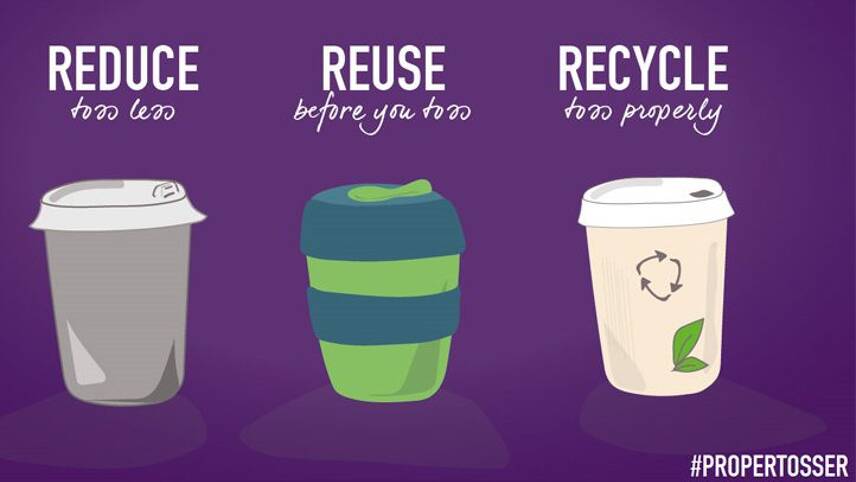Register for free and continue reading
Join our growing army of changemakers and get unlimited access to our premium content

Predictions that there will be more plastic in the ocean than fish by 2050 are shocking, but there’s nothing more powerful than a video of a defenceless creature suffering at the hands of human wastefulness to really drive the point home.
Hugh Fearnley-Whittingstall’s BBC TV investigation into the true final destination of the 2.5 billion ‘recyclable’ coffee cups we use each year, has been another massive driver of change.
The foodservice sector has a plastic problem, but the last 12 months or so has seen some significant signs of positive change. It’s not a moment too soon, as in addition to that massive mountain of discarded coffee cups, there are the 7 billion single use plastic bottles and hundreds of millions of plastic straws.
Throughout September we’re calling on everyone in the foodservice sector to be a #ProperTosser – by Tossing Less, Reusing before they toss and finally, Tossing Properly, if they really have to toss. It’s just a slightly different take on the Reduce, Reuse, Recycle message.
The tide is turning. We don’t feel like so much like King Canute because the waves of waste, thanks to some really progressive moves by many in the industry, are just starting to recede. And, clinging onto this metaphor one more time, we’re asking everyone in the sector to come and surf this new positive wave with us.
There can’t be many items that a business uses a million of in year, that it can stop using overnight and not really notice the difference. But that’s exactly what Oakman Inns did at its 18 sites earlier this year, when it acted in double quick to ditch plastic straws – except in drinks that really require them and for customers who can’t drink without them. Two more groups, Hawksmoor and The Breakfast Club are well on the way to waving goodbye to straws too. Finding the perfect sustainable alternative for those icy cocktails and thick milkshakes is still a challenge, but by stopping plopping them automatically in every drink, they’ve made a giant first step.
Choice editing like this is a great way of helping consumers make the right call. Incentivising good behaviour is another way of positively influencing what customers do. So, on university campuses from Brighton to Glasgow, and at Costa cafés the length and breadth of Britain, coffee drinkers are being offered the chance of a cheaper hot beverage if they opt for their drink in a reusable cup.
Having said that, some university caterers are looking to switch to a more hard-nosed approach, charging more for coffee served in a disposable cup. The really forward-thinking among them are doubling up in a bid to attack the problem from both ends. At Oxford Brookes they are hoping to recycle half of all of the half a million hot drinks they serve annually by introducing one of the most thorough, clear and easy to use recycling initiatives across the campus.
Ditching bottled water altogether would be the ultimate choice edit a restaurant could make, when it comes to a sustainable water service. It would though be a much bigger leap for both consumers and the business owners. That’s why we’ve partnered with ethical water company Belu on a toolkit which lays out clearly and simply all the questions you could be asking yourself to ensure you’re not drowning in information, but floating serenely, secure in the knowledge that you are taking positive action on your H2O.
We’ve also checked in with Michelin Starred Quilon to find out how its decision to ditch bottled water has added to its bottom line and with small central London restaurant Jar Kitchen whose customers have bought into its half switch to filtered water that involves a charitable donation.
As well as being inspired by the achievements of those that have already made a difference, come and join the campaign to be part of the conversation and share those challenges and of course the solutions at www.foodmadegood.org/plastic And be sure to shout out on social about what you’re doing to Reduce Reuse Recycle using #ProperTosser and @FoodMadeGood.



Please login or Register to leave a comment.